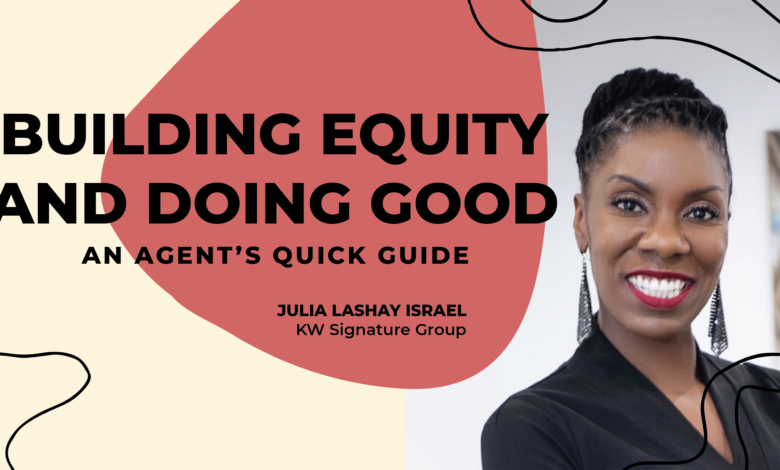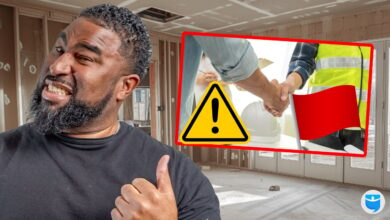
Building Equity and Doing Good: An Agent’s Quick Guide
[ad_1]
In the wake of the Great Depression, the federal government began underwriting home mortgage loans. Supported by a 1938 set of guidelines created by the Federal Housing Administration in order to establish how these loans would be distributed, this act led to a process that NAR now recognizes was discriminatory against nonwhite neighborhoods.
“It’s really important that we know the history of segregation,” says Fred Underwood, NAR’s long-standing director of diversity and inclusion. “As an industry and an organization, we have to understand why these housing patterns still exist … so that we can do a better job of addressing them.”

What exactly did these practices look like? “The FHA used redlining (the act of using color-coded maps, drawing a red line around ‘less desirable neighborhoods and highlighting desirable ones in green’) and deed restrictions to prevent African Americans and other minorities from pursuing homeownership and building wealth,” Keller Williams head of inclusion and belonging Julia Lashay Israel explains. “The result was that from 1934 to 1968, 98% of home loans went exclusively to white families – and this advantage compounded over time.”
The practice has been illegal for 50-plus years, but because of the deep disadvantage that minority communities have been put under during that time, much work remains to be done. A 2021 NAR report titled “A Snapshot of Race and Home Buying in America” states that “The homeownership rate for Black Americans dropped in 2019 compared to 2009, the group most affected by declines in homeownership rates before, during, and after the Great Recession.” Casting an even wider net on the work that remains, the report shows that homeownership rates for white Americans have consistently stayed at 70% in the last few years. In the same time, the rate for Black Americans has been around 41%, while the rate for Hispanic Americans held slightly above 47% and the rate for Asian Americans, above 59%.
To begin bridging the gap, real estate agents can commit to equity – a fairness within processes and systems and the removal of barriers to participation and core aspect of the KW value system. “Equity recognizes each individual situation and circumstance is different, and it allocates the resources and opportunities needed to reach an equal outcome,” Lashay Israel says.
Fair Housing for All
When speaking about equity, it is impossible not to discuss fair housing. The concept of fair housing refers to the right to choose housing without being unlawfully discriminated against. To that extent, the Fair Housing Act of 1968 serves to protect people from housing discrimination as they purchase, rent, get a mortgage, or engage in additional housing-related activities. Today, April is recognized as National Fair Housing Month, celebrating the landmark law. National Fair Housing Month is the perfect time for real estate professionals to further their education and understanding of fair housing for all, and recommit to creating an equitable business. This month, Keller Williams agents have multiple educational opportunities available.
Going the extra mile? Strengthen your business by having access to education, resources, and tools that will have it appealing to a wider customer base. Register now to become an Agent of Distinction and enroll in KW’s inaugural Diversity Certification Program.
What can this look like in real estate, and your business specifically? Lashay Israel offers three steps to consider.
Embrace diversity.
Embracing diversity provides agents with the opportunity to expand their businesses and be able to help a wider net of clients. “You first have to be willing to accept people’s differences, understand cultural differences, and be willing to incorporate those differences into your business,” Lashay Israel says. Here are two ways to ensure you are running a business that is a beacon of comfort for all:
- Add different perspectives to your team. Having different backgrounds, experiences, and skills among team members will allow your business to understand and speak to a broader audience. If you are a solo agent, you can create the same environment by taking a look at your network – from lenders to home inspectors. “Think of it this way: I’ve never been to Guyana. I’ve never been to Mexico. But I have friends who are from all of these places, all over the country and all over the world,” Lashay Israel says. “Because of them, I learn things about their culture, their belief system, and how they do business. Increasing your knowledge in different cultures and backgrounds helps you appeal to a much wider client base.” One way to expand your hiring pool is to ensure job listings are posted in a variety of mediums (social media, numerous job boards, ads, etc…). Why? “So that the widest range of people can see your roles rather than using avenues that would bring in people from your immediate network, which usually consists of those similar to you,” advises Lashay Israel.
- Implement an equitable business model and strategy. In essence, this comes down to having consistent policies and procedures that allow you to treat every customer and client in the same manner. “We all have preconceived notions of people based on things we’ve heard, things we’ve seen, experiences we’ve had, and even experiences we haven’t had,” says Lashay Israel. “The only way to make sure that your prejudgments of people don’t interfere with your pocketbook is to make sure that you are consistently implementing the same policies and practices with everyone you encounter.” One way Lashay Israel’s team does this is requiring a pre-approval letter prior to showing homes. “Regardless of how much or how little money we “perceive” someone to have, if they don’t have an actual pre-approval letter we don’t show them homes. This eliminates operating from any biases we may have.”
Revamp your marketing efforts.
The goal of marketing is gaining exposure and positive outcomes. Take a look at your marketing efforts – are there any platforms or channels you are not currently using that could ensure your listings and message gets in front of more eyes? “The key to success is inclusion, not exclusion,” Lashay Israel says. “Ask yourself, am I doing anything that would violate Fair Housing laws, or worse, reduce my reach?”
According to NAR, ensuring your advertisements comply with the Fair Housing Act should be top of mind. In revamping your marketing efforts, make sure to not express preferences for certain characteristics, or exclude individuals based on a protected class. Take a look at the following checklist, available in full on the NAR website:
- Focus on the property, not the buyer/renter.
- Do not make statements that exclude individuals based on a protected class.
- Do not limit your ads’ reach by practices such as using platforms that restrict who can see the ads based on characteristics such as race, religion, or age.
- Use advertisement imagery that is reflective of the population in the area where the ad is placed.
- Include the phrase “Equal Housing Opportunity” or the Fair Housing logo in your ads.
- Familiarize yourself with local and state fair housing laws.
Get involved in your community.
“People do business with people they know, like, and trust,” Lashay Israel says. By getting involved in your community – whether that is your church, a neighborhood organization, a nonprofit, or anything in between – you will not only do good and exemplify the servant leadership many agents pride themselves on, but you will also build trust around your business, creating a win-win situation. An example of community involvement is speaking at first-time home buyer seminars. “In my community, there is nothing more rewarding than teaching people to get the information that they need to build wealth for their own families through homeownership,” she says.
As you start delving into creating a more equitable business for your clients (and expanding your roster by creating a comfortable environment for a wider net of prospects), log back in to the Family Reunion 2021 platform for in-depth knowledge from Lashay Israel’s master class session, “Every Agent’s Guide to Building Social Equity and Doing Good.”
[ad_2]





